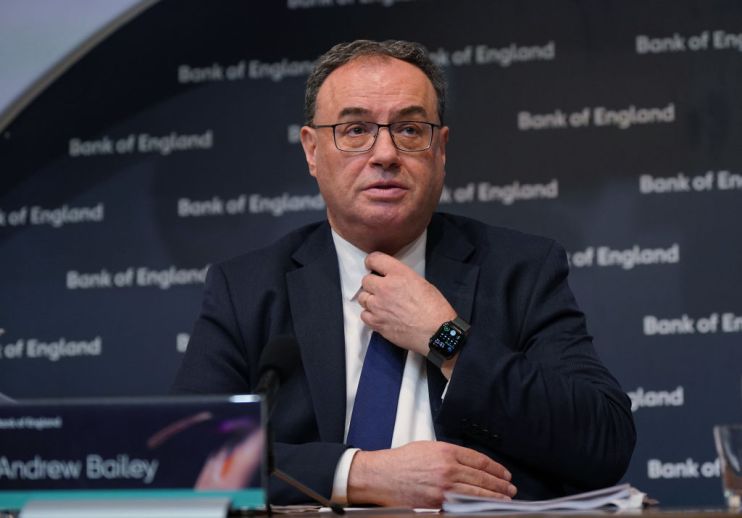Will inflation ever fall back below 10 per cent? Yes, but we’ve been wrong before

We find ourselves in the same situation again.
UK inflation has topped the City and Bank of England’s expectations, hanging in the double digits in March at 10.1 per cent. The forecast was for it to slip to 9.8 per cent.
Families and businesses will be forgiven for worrying whether it will ever fall back below 10 per cent – the last time it did so was August, seven months ago.
Britain now very clearly has the worst inflation problem in the rich world.
Economists keep saying it will definitely, definitely fall, which eventually will happen. Energy prices have tumbled, and today’s data showed the rate of price increases for inputs used by firms is curbing. The Office for Budget Responsibility reckons the consumer price index will slump to around three per cent by Christmas.
March’s overshoot was primarily driven by food inflation rising yet again to more than 19 per cent, levels not seen since the late 1970s.
Milk prices, up 40 per cent; olive oil nearly 50 per cent; sugar about 42 per cent.
The problem with inflation that’s driven by rising prices of everyday essentials is that consumers can’t really change their behaviour to avoid them.
Sure, they can trade down to budget retailers. They’ve clearly been doing that, with German discounters Aldi and Lidl gaining market share.
But rising food prices hit families right where it hurts.
That has left some wondering whether the Office for National Statistics is fully capturing the rate of price increases in the UK economy. Exposure to food inflation that is nearly double the headline rate means people have every right to think inflation is actually a lot higher.
That’s a problem for the Bank of England. It risks households assuming prices will keep increasing at a rapid clip as the year progresses, the absolute worst scenario for any central bank.
Examine the ONS’s numbers and anyone can see signs of domestic price pressures holding pretty firm in response to Bank Governor Andrew Bailey and co’s aggressive eleven straight interest rate increases.
Britain now very clearly has the worst inflation problem in the rich world
Core inflation – which strips out food and energy – was unchanged in March at 6.2 per cent. Services inflation, which the Bank has said needs to trim for it to stop raising borrowing costs, is still elevated.
This leads us to the Bank blame game. Is it all Andrew Bailey’s fault that inflation has stayed above his two per cent target for about 18 months?
No. A constellation of factors have jolted prices, but he and the rest of the monetary policy committee (MPC) were, in hindsight, wrong to wait until December to 2021 to back their first rate increase.
Trying to reclaim their inflation credentials will almost certainly force the MPC into another rate increase on 11 May – maybe by 50 basis points, but more likely 25 basis points. Markets think rates could eventually hit five per cent (maybe a bit overblown).
We certainly haven’t reached peak rates yet.